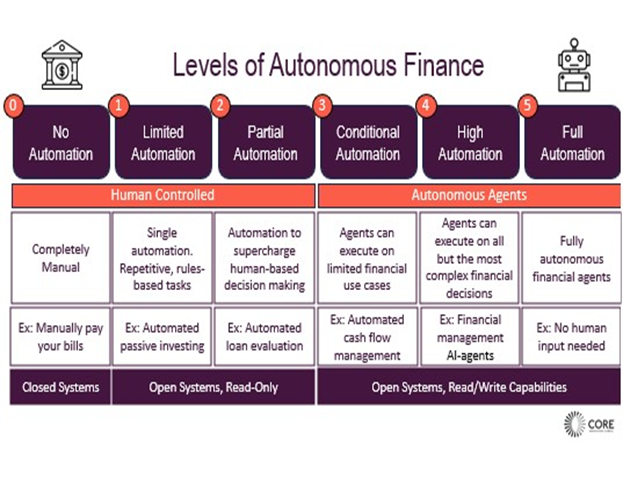by Gregg Schoenberg and Arjan Schütte
In the fog of pandemic war, with everyone an armchair critic, finger-pointing abounds, unimaginatively partisan in nature. Has no one changed their minds about anything in this unprecedented time?! What is clear is that it will take a village to get out of this hole, and the parts of the village with the greatest leverage are business and government. From the G.I. Bill to Medicare, some of the most transformative efforts in our history have been private-public partnerships. We’d like to propose some opportunities that we hope come from today’s environment in the financial services sector: better relief disbursements to small businesses, Community Reinvestment Act reform, and structural economic enhancements beyond UBI.
It boggles the mind that we left an eleven-year bull market with a $1 trillion deficit, which just tripled in a New York minute and will likely be $5 trillion by the time the ship is steering to positive GDP. Some of that money is disbursed, in bursts, to small businesses and individuals in need. The difficulty associated simply with getting money to the right people is staggering. Determining recipients should be a matter of rigorous public debate, but facilitating the transaction should be easy. And guess what? This won’t be the last stimulus or government grant we’ll see. In fact, the government makes entitlement disbursements to people ALL THE TIME. Why are we still stuck in the dark ages of the 1970s? The private sector can and should help here, and the public sector should help clear the bureaucracy getting in the way. It’s long overdue.
The Last Mile Challenges
We’ve watched a number of innovators pitch the federal government with solutions to the last-mile challenges of getting money to the end recipient. And at the state level, we’ve been trying to help efforts to get relief dollars to vulnerable unemployed people — and it’s not pretty. The need for new approaches is particularly acute when it comes to helping ailing small businesses. Indeed, the clunkiness of the banking system in distributing the small business stimulus has been on full display. Some community banks went to heroic lengths to secure PPP loans for their small business customers before the program ran out of money. Many of these efforts were successful in spite of antiquated core processing systems that inhibited their agility. Meanwhile, many mid- and top-tier banks seemed content to sit back and get paid (up to) 5% servicing fees for doing little more than handing out money to their best customers with very little risk. Really? Is this the best we can do? In the future, we think that technology companies are far better positioned to play a bigger role in distributing money equitably and at scale. PayPal, Intuit, Fundera, Kabbage and OnDeck are just a few names that come to mind, but there are many others, too. Hopefully, the Fed, Treasury and SBA will lean more heavily on these dynamic companies in the years to come.
CRA Reform
When the Community Reinvestment Act (CRA) was passed in 1977, expectations ran high that it would herald a new day for low- and moderate-income neighborhoods. And while CRA has become hopelessly out of date, it remains a major way in which banks “pay” for their structural benefits. Unfortunately, as we’ve seen in recent months, the task of modernizing the law is complicated and fraught with political minefields. In fact, the OCC actually wants to get rid of certain types of small business support as qualifying for CRA! But in the meantime, thousands of small businesses still cannot gain access to capital, and millions of Americans continue to be shut out of the banking system. In our post-COVID-19 economy, where a bank’s physical presence and its customers are likely to have less and less overlap, the need to modernize the CRA to ensure that it achieves its original mission is more important than ever. But a positive solution can only come about if regulators and innovators put aside entrenched positions and breathe new life into old legislation. Call us naive, but we still believe that much more good can be done at much greater scale than before.
Universal Basic Herring
As with so many things of late, one’s position on the emergency measures taken to support our economy has been viewed through an ideological lens. So if you were opposed to Universal Basic Income (UBI) before this crisis, you may have perceived the emergency stimulus checks distributed to many Americans as a backdoor route to a techno-libertarian social agenda. If you supported UBI previously, you were likely happy to see stimulus checks approved for a large swath of Americans. Either way, we think that the talk around what the government should pay people in their time of need has overshadowed a bigger issue: How can the government work with the private sector to get back to growing the pie and sharing it more equitably? Is it putting stricter and more permanent caps on buybacks and dividends? Incentivizing greater R&D spending through the tax code? Favoring longer-term investment over short-term speculation? Reigning in the gig economy? We don’t have all the answers, but one thing to us is clear: UBI is a red herring distracting us from structural ideas to make our free market economy work better.
Conclusion
Churchill’s adage to “never waste a good crisis” should fuel us to learn what is happening around us, look past our particular ideology and forge a set of public-private partnerships that will form a foundation for the next quarter-century. If we can do that, then this nation will live up to Warren Buffet’s recent remark that America is basically unstoppable. If we don’t, well, let’s not go there….
Gregg is an advisor to Core Innovation Capital and several fintech companies. He’s also a contributor at TechCrunch




